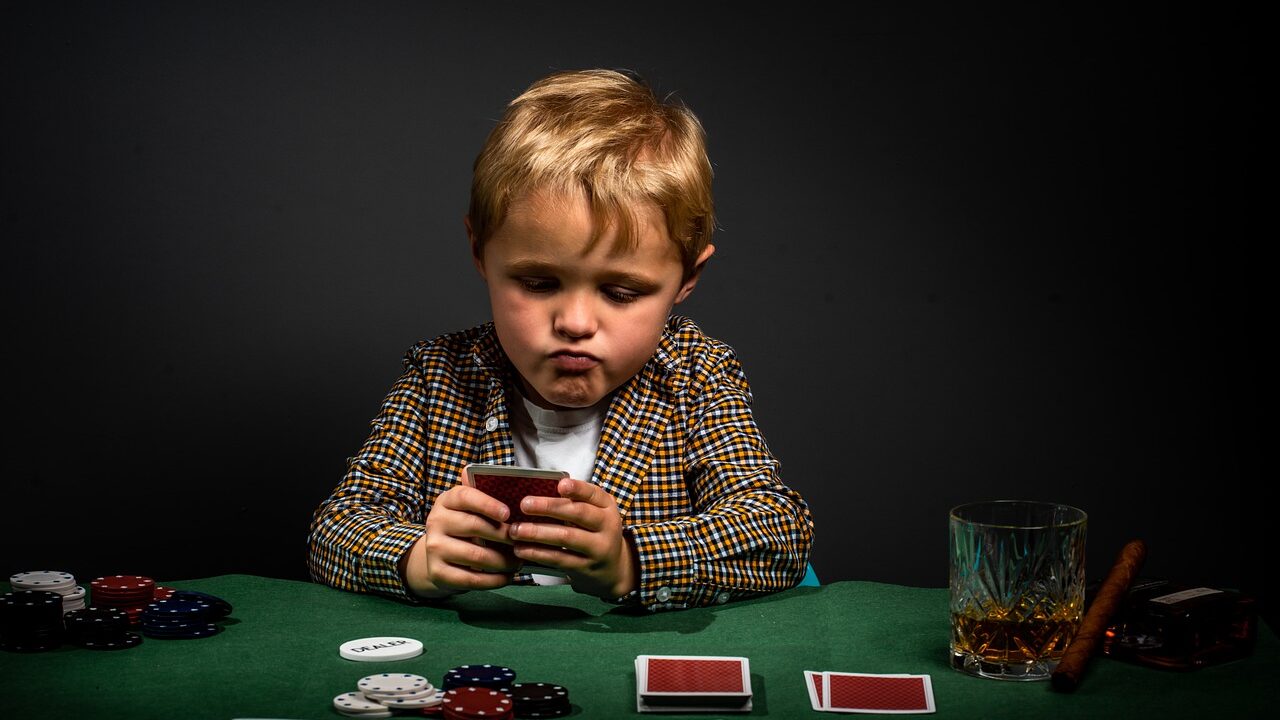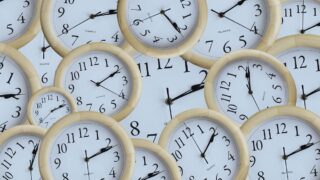ライフハックとしてではなく、英語学習にも極めて有用なのが、著名人が10分程度のプレゼンを行うTEDです。
TED Talksとは、あらゆる分野のエキスパートたちによるプレゼンテーションを無料で視聴できる動画配信サービスのことです。10年ほど前にサービスが開始されてから、政治、心理学、経済、日常生活などの幅広いコンテンツが視聴できることから人気を集めています。
RareJob English Lab
TEDは4000を超える膨大な数の動画があります。しかし慣れないうちは、動画の探し方や視聴のコツが分かりませんよね。この記事では、数多くのTEDを見てきた管理人(塩@saltandshio)が、心を揺さぶられたトークをあらすじと一緒にご紹介します。
ビジネス英会話を効率よく身につけたい方におすすめスクール
シェーン英会話
シェーンは1977年の創業以来、ネイティブ講師が英語を英語で教える「直接教授法」を採用しています。首都圏におけるスクール拠点数は、ネイティブ講師の英会話スクールでNo.1。駅から近いスクールが多いので通いやすく時間を有効に使えます。
スピークバディ パーソナルコーチング
1日1時間の短期集中トレーニングで、あなたの英語力向上をコーチが全力でサポートします。あなたの英語の世界が、劇的に変わります。
リヴ・ボエリー: ポーカーの達人が教える決断の3つの秘訣
勝負は、実力だけでなく運も必要なものなのでしょうか?重要な決断をするときには直感を信じるべきか、それとも確率と細心の分析に頼るべきか?リヴ・ボエリーが、プロのポーカープレーヤーとしての経験から、勝負の世界で学んだ3つの戦略と、その日常への応用について語ります(約6分)。
[PR]無料体験レッスン実施中!全国208校、創業40年の老舗英会話スクール【シェーン英会話】人は調子に乗っている時ほど自分を過信する
トークの中で、リヴ・ボエリーは正しく決断を下す3つのコツを紹介します。具体的には以下の3つです。
- 運を正しく見極め、そのなかで自分の実力はどれほどか考える
- あいまいなものほど数値化する
- 直観は無視はできないが過信してもいけない
カジノや競馬など、勝負事やギャンブルでは、勝ちが続くと人は自分の事を『運がいい』と思いますよね。
リヴ・ボエリーもそうでした。2010年、ポーカーに専念するようになって1年足らずで、リヴ・ボエリーはものすごく大きな大会で優勝を収めます。その結果、リヴ・ボエリーになにが起きたのかというと、自分には才能があると勘違いをしてしまうのです。
舞い上がってしまったリヴ・ボエリーは、自分の試合結果をきちんと分析せずに、次々と大きな大会へと挑みます。最初の頃は勝ち続けていたリヴ・ボエリーも、次第に収入が減っていきます。そうして、負けが続いていくうちに、リヴ・ボエリーはようやく自分を過大評価していたことに気が付くのです。
このことを、リヴ・ボエリーは2017年の仮想通貨の相場に例えます。誰しも、調子がいい時は自分を天才だと錯覚しまいます。だからこそ、『勝ち』が続いている時ほど少し立ち止まり、運の要素と自分の実力を正しく把握することが大切だとリヴ・ボエリーはいいます。
これが、1つめの決断する時の秘訣です。
[PR]まずは無料カウンセリング”続けるため”の オンライン英語コーチ「スピークバディ パーソナルコーチング」あいまいなものほど、数値化してみる
2つめの秘訣は、数値化して考えるです。
ポーカーの勝負をしている時、どうせハッタリだろうという勘だけで物事を決めてはいけないとリヴ・ボエリーはいいます。なぜなら、勝負には多額のお金がかかっているからです。ポーカーは、確率と精度のゲームです。そのため、何事も数字で考えるように自分を鍛える必要があるのです。
書類の作成を頼まれた時、はたまた飲み会に誘われた時、あらゆることを確率的に考えると、物事が良く見えてきます。
「ねぇ今晩来られそう?」と聞かれたら、「たぶん」と答える代わりに最善の推定値を出します。「60%ね」、とか。
So if someone asks me, “Hey, Liv, do you think you’re going to come along to that thing tonight?” instead of just saying to them, “Yeah, probably,” I actually give them my best estimate — say, 60 percent.
実際、リヴ・ボエリーがTwitterで質問を投げかけたところ、「たぶん」の割合は約60%でした。
私達は、相手に対して言いにくい返事をする場合、「たぶん」や「ときどき」といった曖昧な言葉を使います。リヴ・ボエリーは、「自分が曖昧な返事をしていることに気が付いたら代わりに数字を使ってみて」といいます。
なぜなら、数字であれば、自分が本当に考えていることが分かるからです。
[PR]知って得する、知らないと損をする!すぐに役立つ相手に合った「伝え方」のコツ!直観は無視はできないが過信してもいけない
結婚相手を決める時、お家などの大きな買い物をするとき、なぜか私達は「運命」を感じて、それを(無理に)信じようとします。
リヴ・ボエリーは世界で活躍するポーカープレイヤー達の写真をスクリーンに映し出します。彼らはみんな真剣な眼差しで、勝負の行く末を見据えています。彼らは直感では動かず、注意深く試合を観察しているのがわかります。
直感は、私達が思っているほど完璧なものでは ありません。
And that’s because our intuitions aren’t nearly as perfect as we’d like to believe.
困難に直面した時、直感がすぐに降りてきたらこれほどありがたいことはありませんよね。しかし、私達が普段感じる直観は、「この人は怒っていそう」とか、「この隙間なら車を駐車できそう」とか、そういう些細なことにしか働かないものなのです。
それなのに、何のデータにも基づいていないのに、『運命の相手』だと決めつけるのは変だとリヴ・ボエリーは指摘します。
[PR]無料会員登録。あなたにぴったりのカウンセラーに出会える! ココナラの【心のお悩み相談】結論:疑問を数値化してみると答えが出ることもある
日本人はあいまいを好みます。あいまいであることが潤滑油になることを知っているからです。しかし、なにか決断を下すときは、その『甘い判断』があとで命取りになることがあります。
もしくは、なにかハッピーなことが起きて、喜びの余り自分を勘違いしてしまうこともあるでしょう。
なにか重大な決断を迫られた時、または思いがけない喜ばしいことが起きた時、ポーカーの達人が教える決断の秘訣を思い出してみましょう。
曖昧な疑問ほど、数字に置き換えてみるのです。そうすればきっと、大きな落とし穴に落ちる事態を避けることができるでしょう。
英語全文
So I’m a professional poker player, and today, I want to talk about three things that the game has taught me around decision-making that I find apply to everyday life.
<全文を読む>▼クリック▼
For example, back in 2010, I won a really big poker tournament known as the European Poker Tour. And because I’d only been playing full-time for about a year, when I won, I assumed I must be rather brilliant. In fact, I thought I was so brilliant that I not only got rather lazy with studying the game, but I also got more risky, started playing in the biggest tournaments I could against the very best in the world. And then my profit graph went from a thing of beauty to something kind of sad, with this worrying downhill trend for a long time, until I finally realized that I was overestimating my skill level, and got my act together.
And this kind of reminds me of what we’ve been seeing in the cryptocurrency space, at least in 2017, where the only thing that’s been going up faster than the markets themselves is the number of “senior investment specialists” who have been appearing out of nowhere. Now I’m not saying it’s not possible to have a strategic edge, but at the same time, it’s very easy to feel like a genius when you’re in a market that’s going up so fast that even the worst strategies are making a profit. So when we’re experiencing success, it’s important to take a moment to really ask ourselves how much of it is truly down to us, because our egos love to downplay the luck factor when we’re winning.
Now, a second thing poker taught me is the importance of quantifying my thinking. When you’re playing, you can’t just get away with going, “Eh, they’re probably bluffing.” That’s just going to lose you a bunch of money, because poker is a game of probabilities and precision, and so you have to train yourself to think in numbers. So now, whenever I catch myself thinking vaguely about something really important, like, “It’s unlikely I’ll forget what I want to say in my TED Talk,” I now try to estimate it numerically.
Trust me, it helps a lot with the planning process. And the thing is, almost anything that could possibly happen here today, or at any point in the future, can also be expressed as a probability, too.
So now I also try to speak in numbers as well. So if someone asks me, “Hey, Liv, do you think you’re going to come along to that thing tonight?” instead of just saying to them, “Yeah, probably,” I actually give them my best estimate — say,60 percent. Because — I know that sounds a little odd — but the thing is, I ran a poll on Twitter of what people understand the word “probably” to mean, and this was the spread of answers. Enormous! So apparently, it’s absolutely useless at actually conveying any real information.
So if you guys catch yourselves using these vague words, like “probably” or “sometimes,” try, instead, using numbers, because when we speak in numbers, we know what lands in the other person’s brain.
Now, the third thing I want to touch on today is intuition. How often have you seen these kinds of inspirational memes in your Facebook feed?
[ Always trust your gut feeling and never second-guess. ]They’re nice, right? It’s lovely. Yes. “Trust your soul.” Well, they’re terrible advice. These are some of the best poker players in the world right now. Do they look like people who live purely off feelings and intuitions?
Look at them! Obviously, these guys are about slow, careful analysis, and that’s because the game has outgrown the days where pure street smarts and people-reading can get you to the top. And that’s because our intuitions aren’t nearly as perfect as we’d like to believe. I mean, it’d be great, whenever we’re in a tough spot, to just have an answer appear to us from some magical source of inspiration. But in reality, our gut is extremely vulnerable to all kinds of wishful thinking and biases.
So then, what is our gut good for? Well, all the studies I’ve read conclude that it’s best-suited for everyday things that we have lots and lots of experience in, like how we just know that our friend is mad at us before we’ve even said anything to them, or whether we can fit our car into a tight parking spot. But when it comes to the really big stuff, like what’s our career path going to be or who should we marry, why should we assume that our intuitions are better calibrated for these than slow, proper analysis? I mean, they don’t have any data to be based off.
So my third lesson is, while we shouldn’t ignore our intuitions, we shouldn’t overprivilege them either. And I’d like to summarize these three lessons today with my own set of memes, with more of a poker-player twist.
“Success is sweetest when you achieve it across a large sample size.”
“Your gut is your friend and so is a cost-benefit analysis.
“The future is unknown, but you can damn well try and estimate it.”
<閉じる>
\ ほかにも気になるトークが満載! /








